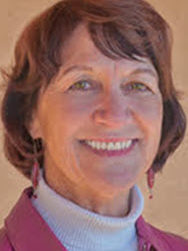
By Mary McPhail Gray
Board Chair
The shiny blue pickup drives into the Enos Garcia Elementary School parking lot pulling a large red horse trailer. Out steps Madalena Miera, a CCSS Taos Behavioral Health worker, and opens the gate to lead out two miniature horses, Mama and Mickey. Across the lot dash a group of smiling elementary students with joy in their eyes. The pony therapy session is beginning!
Miera and Siena Sanderson, with Los Cumbres Community Service, had initiated some work with vulnerable youth a year ago — until funding ran out. Taos Behavioral Health then identified funding and a structure to start a program this fall at Enos Garcia and Taos Middle School. The program is based on Miera’s work over the past four years with her two miniature ponies and her review of the research on equine therapy and youth.
The youth coming to the classes have been referred by clinicians serving the schools with approval from their parents. The experience has been life changing — or at least significant behavior changing — for a number of the youth. These changes — observed by clinicians and teachers and the pony therapy staff — echo research findings: Higher self-esteem, increased self-control, greater focus, calm, joy, and trust.
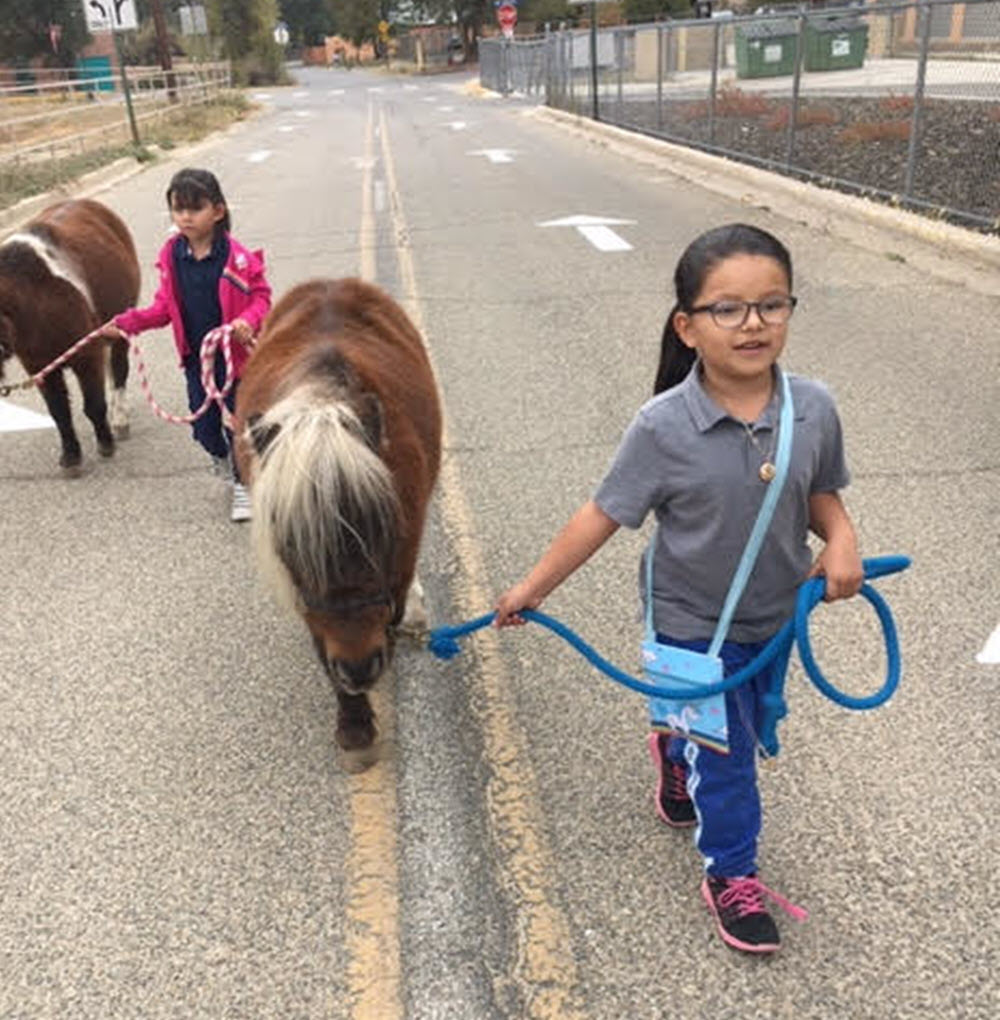
Foreground: Sophia Montoya leading Micky . . . Background: Damika Martinez leading Mama
[More photos below]
Horses are unique in the relationship they can build with youth. They react with fear to expressions of anger, bullying or frustration from humans. They are very social animals and are sensitive to the energy around them. Miera comments that when a youth is hyperactive or excitable, the pony will walk slowly forcing the youth to calm down. A very shy hesitant youth will find that the pony will trot along more briskly encouraging the youth to move more confidently ahead.
The youth learn basic care and safety rules about horses — how to approach them (not from the back), to walk on their left side, to express calm and clear directions, etc. They build a relationship with the horse that is calming and healing — building a bond that can help them with human connections. Miera described a girl who was shy, had low self-esteem and had been bullied by classmates. During a session, one pony stepped on her foot, and she immediately shut down and said she didn’t want to do the classes anymore. But one day not long after, other classmates were watching the pony therapy session. The shy girl stepped up to share her lessons about caring for horses, keeping yourself safe around them and demonstrated how you lead the pony around the lot. She ended up with a proud smile and increased confidence.
Another youth came to school in great distress after a family violence episode the previous night. She was not talking and near tears. Then she came to the pony class and silently went through the routine of grooming the pony and leading him around the lot. The tension slowly disappeared from her body, and soon “She was talking like a magpie” stated Miera.
Equine therapy has been successfully used with youth 6 to 18, adults and families. It appears especially helpful in the treatment of anxiety, post-traumatic stress disorder (PTSD), attention deficit hyperactivity disorder (ADHD), and addiction. With more funding, Miera would like to expand her work to the high school. TBH is currently reaching 28 youth in the two schools we are serving with this program.
Many people have contributed to the success of the program — the Colorado family from whom Miera acquired the horses had a number of children who loved and socialized the ponies. Miera’s four children continue to do the same. The administrators and teachers in the schools have supported the idea of therapy during academic time — so that parents do not have to transport their children for an after-hours session.
We hope you agree this program is providing a unique and special experience for our youth.
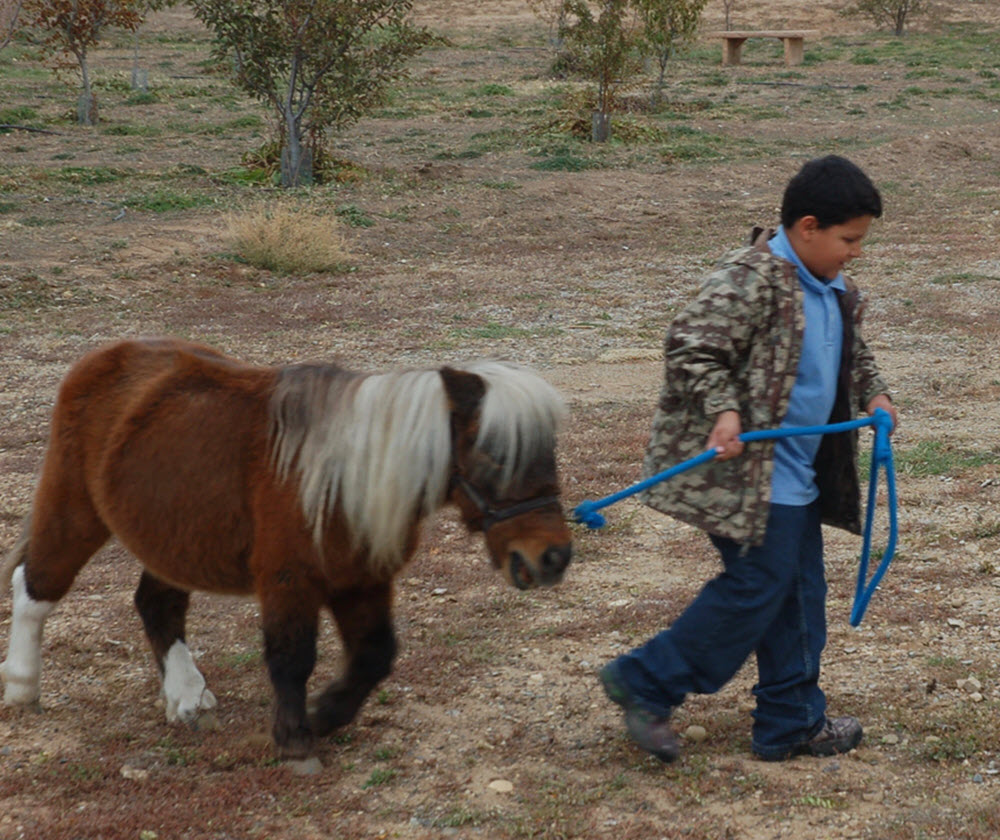
LeRoy Montoya leading Micky

Aquamarine Gonzales with Mama
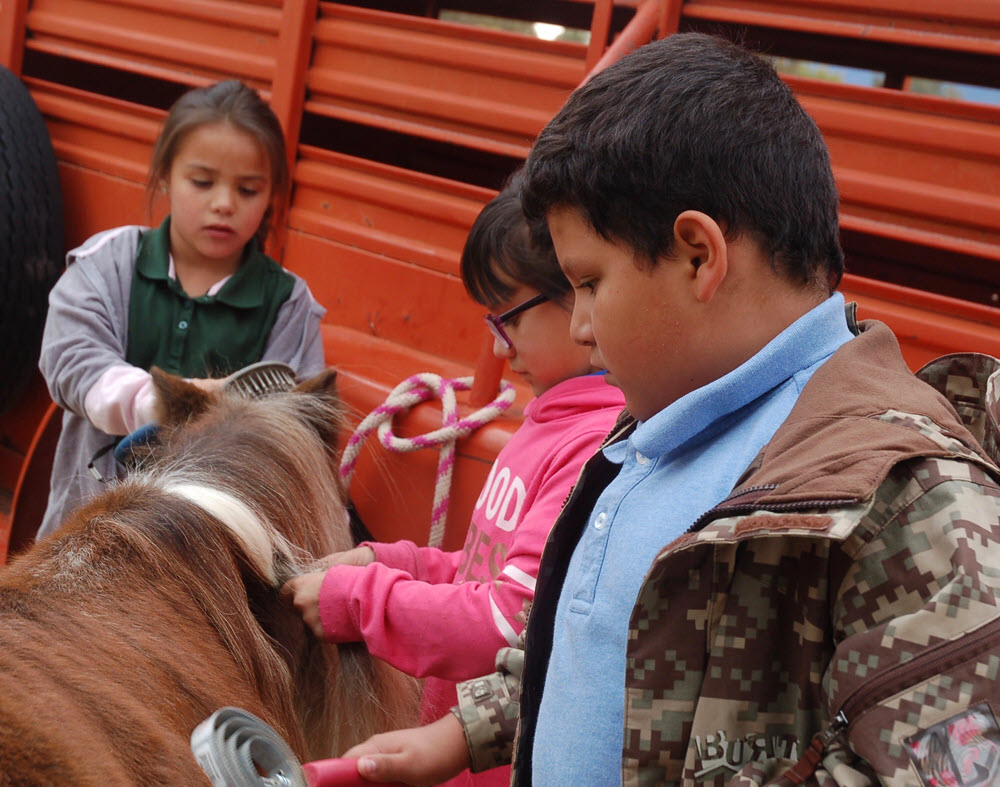
Left to Right: Aquamarine Gonzales, Hope Bournique-Trujillo, LeRoy Montoya
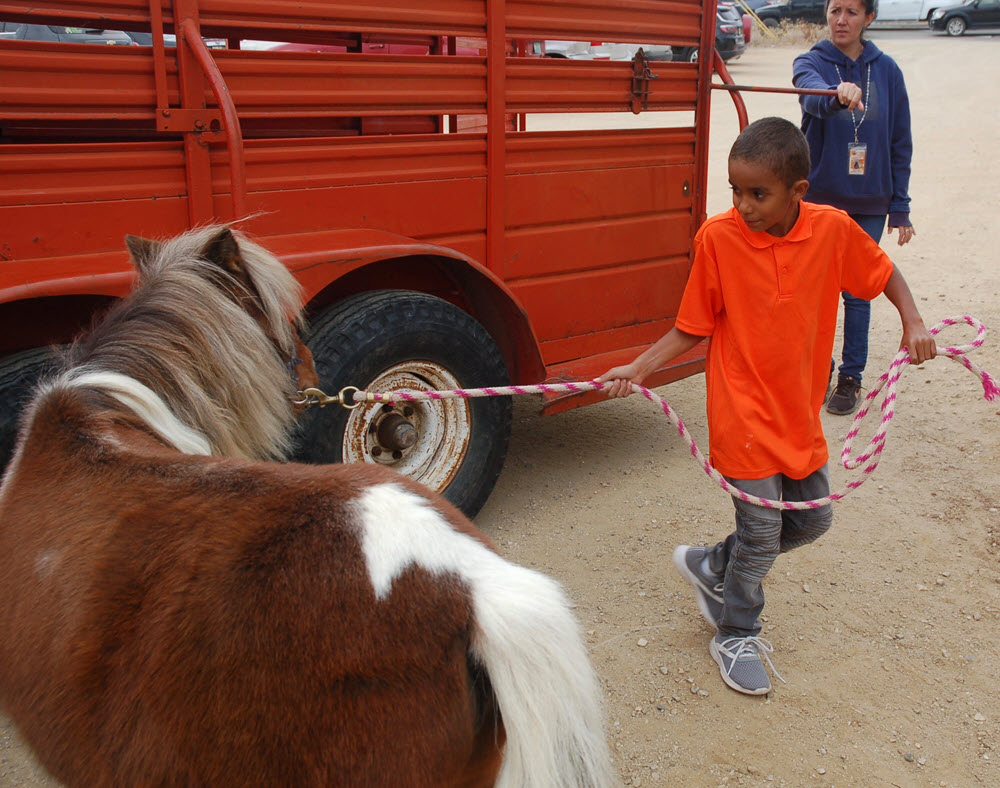
Foreground: Gabriel Erickson leading Mama . . . Background: Madalena Miera
Taos Behavioral Health has the largest credentialed and licensed behavioral health staff in northern New Mexico. Reach us with donations and referrals at 575-758-4297 or www.taosbehavioralhealth.org.
Mary McPhail Gray is the board chair of TBH and can be reached at 575-779-3126 or mcphailconsulting@gmail.com

